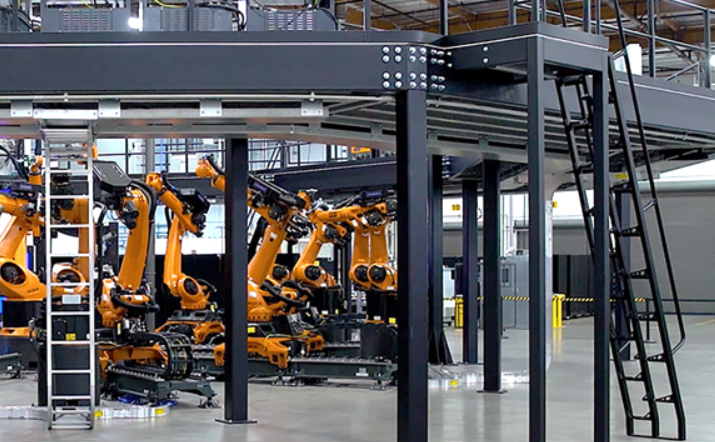Swedish software developer Hexagon announced a $100 million investment in Divergent Technologies, an industrial-scale manufacturing company.
Divergent has created an alternative production process to conventional vehicle manufacturing named Divergent Adaptive Production System (DAPS). This system, according to the company, identifies economic and environmental challenges head-on.
“Manufacturing a car’s parts has a much greater impact on the environment than the car’s exhaust emissions, which is why new manufacturing concepts will win,” said Hexagon President and CEO Ola Rollén. “We must find ways to empower car makers with more efficient and environmentally friendly manufacturing processes that minimize material usage and total system cost. Incremental steps are simply not enough to save the planet.”
“We are humbled and honored to be partnering with Hexagon,” said Kevin Czinger, Divergent’s Founder and CEO. “Having their vote of confidence in what we’ve built and our vision for the future of manufacturing brings new energy and enthusiasm to our team.”

Features of Divergent Adaptive Production System (DAPS)
DAPS is a fully integrated software and hardware solution that creates a comprehensive modular digital factory for complicated structures. To create lightweight automotive parts and frames, the patented process combines AI-optimized generative design software, additive manufacturing, and automated assembly.
Vehicle models’ weight, strength, and cost are optimized by this design software. Parts are independently 3D printed and compiled, minimizing manufacturing time and human involvement. Part manufacturing and assembly can be performed by employing the same hardware infrastructure regardless of design, allowing for quick design iterations or seamless switching between different vehicle models without downtime. The design-agnostic process consumes less energy and resources, produces more efficient structures faster, and attains weight reductions ranging from 20% to 70%, resulting in dramatic improvements in vehicle efficiency.
“This significant investment will allow us to accelerate our plans to build a global network of DAPS factories, each serving multiple OEM clients,” said Lukas Czinger, Divergent’s SVP of Operations and Czinger Vehicles Co-Founder. “We look forward to a long-term relationship with Hexagon as Divergent and Czinger Vehicles scale.”
“In my keynote speech at HxGN LIVE Global 2022, I delivered a message of hope for a sustainable future by naming the culprit aloud: all of us,” added Rollén. “While the steep climb in emissions over the last 30 years happened on our watch, none of us want to go down in history as the CO2 Generation – the one that polluted and warmed this planet. For that reason, Hexagon continues to invest in disruptive and unconventional technologies that make giant leaps forward. We are the perfect partner to ensure quality is delivered throughout this new, innovative manufacturing process. Together, Hexagon and Divergent will deliver the smart manufacturing concepts of the 21 st Century.”
Elsewhere, the Creative Use of 3D Printing Award was awarded to Czinger Vehicles’ 21C hypercar at 3D Printing Industry Awards 2022. Here is the link to know more about Czinger at Goodwood.
Industrialization of additive manufacturing
This year, BMW announced the successful completion of its Digitalisation and Industrialisation of Additive Manufacturing or ‘IDAM’ project. Since its inception three years ago, BMW and its partners have established two digitally connected automotive 3D printing production lines. These manufacturing suites, one in Bonn at material developer GKN Powder Metallurgy and the other in Munich, are capable of producing around 50,000 parts per year while operating autonomously without the need for manual input.
Furthermore, industrial manufacturing firm Siemens and Roboze, industrial-grade 3D printer manufacturer, have formed a collaboration to create comprehensive workflows for the industrialization of 3D printing. Through a series of digitalization and automation projects, the two companies were able to merge their respective expertise to ramp up production opportunities for companies in the energy, mobility, and aerospace sectors.
Follow this link for all the Formnext 2022 news.
To stay up to date with the latest 3D printing news, don’t forget to subscribe to the 3D Printing Industry newsletter or follow us on Twitter, or like our page on Facebook.
While you’re here, why not subscribe to our Youtube channel? Featuring discussion, debriefs, video shorts, and webinar replays.
Are you looking for a job in the additive manufacturing industry? Visit 3D Printing Jobs for a selection of roles in the industry.
Feature image shows Hexagon’s Simufact Additive platform being used to analyze a part. Image via Hexagon.



